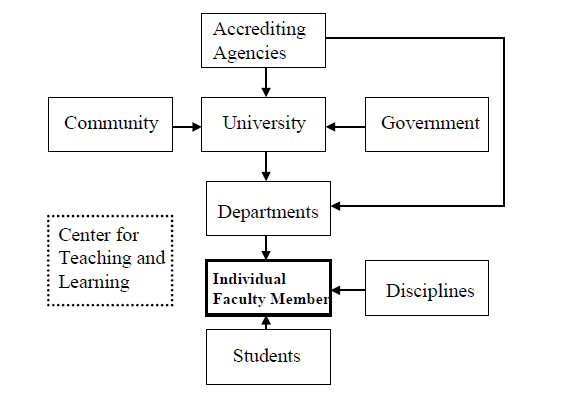Introduction
Ethical consideration for teachers is one of the most important factors while considering the education profession and taking on the role of teacher. The ethical responsibilities are related to the teacher-student commitment and are also based on the teachers’ perception of their impact on teaching and learning. A good educator must understand the field as an evolving and changing discipline based on theories and evidence-based principles.
Ethical Considerations for Teachers
There are three basic ethical considerations in educational practice and policy which create a need for the reflection of ethics to frame practices of teachers (Peterson, Kelly & Caskey, 2002).
The first one is reoccurring series of evaluation designs that directly involve teachers in formative or summative peer evaluation. Secondly, call for increased teacher professionalism, and finally for a variety of educational applications use of ethical codes to guide professional behavior. The teacher involvement in professionalism and peer evaluation are controversial, the proposals and studies provide more teacher data judgments and gathering summative peer evaluation (Peterson, 2000). A clear understanding of this expected behavior on part of teachers as evaluators and set esthetical guidelines to develop the professional duties among teachers. Peer evaluation can include a combination of activities often, the summative formative nature of the task defines these activates. Peer evaluation is a mixture of review of instructional materials, mentoring and assistance in gathering data, collaboration in action research and school development projects, or grade level leadership. The purpose of using ethical codes is to invite comments and suggestions from the readers and reviewers. (McCarthey & Peterson, 1988).
Relevant Research
Evaluation is a sign of professional lives position can be achieved by passing a series of rigorous evaluations that continues to be evaluated by colleagues sitting on maintenance and promotion committees, by administrators, and by students.

The above figure shows the number of parties who have either a direct or indirect interest in faculty evaluation. Because of the evaluations that can significantly influence professions and lives so, in consequence, these entities represent seats of power (Lapp, Lascher, Matthews, Papalewis & Stoner, 2002).
The educational profession is highly based on excellent modifications in enhancing and upgrading the teaching profession, call for increased professionalism rely on the involvement of science for that reason the educational research-and-development community considers that the educational improvement is based on scientific progress (DeYoung, 2005).
The Code of Ethics was developed to provide members of the Teachers Association with some extensive ethical statements to direct their professional lives and to identify relevant considerations in the case when ethical uncertainties arise, and also present resources for individuals new to the profession to learn about the ethical principles and standards that should conduct the work of institutional researchers. The code application needs the use of common sense and high-quality judgment and it can be used in any specified case. Consequently, the Code needs to be reviewed and applied carefully in cases that may be seen either as ineffective or as all-powerful, neither of which is suitable (Association for Institutional Research, 2001).
Conclusion
This paper identifies three basic ethical considerations in educational practice for teachers in a K-8 setting and relevant research work. Furthermore, the teachers can change the culture of the school to alter the way students are treated. Beliefs, values, and behaviors can change significantly when teachers volunteer to integrate the general education environment. Teachers in schools started to reflect upon their priorities that were created by a group of their colleagues. The criteria of the successful professional are one who works efficiently and effectively in meeting the standardized criteria set for the accomplishment of both teachers and students.
References
- Association for Institutional Research. (2001). Code of Ethics. Web.
- Lapp, N., Lascher, T., Matthews, T., Papalewis, R., & Stoner, R. (2002). A Proposal for Formative Assessment of Teaching Center for Teaching and Learning Task Force on Formative Assessment. Sacramento State , 1-11.
- McCarthey, J., & Peterson, K. (1988). Peer Review of Materials in Public School Teacher Evaluation. Journal of Personnel Evaluation in Education , 259-267.
- Peterson, K. D., Kelly, P., & Caskey, M. (2002). Ethical Considerations for Teachers in the Evaluation of Other Teachers. Journal of Personnel Evaluation in Education , 317-324.